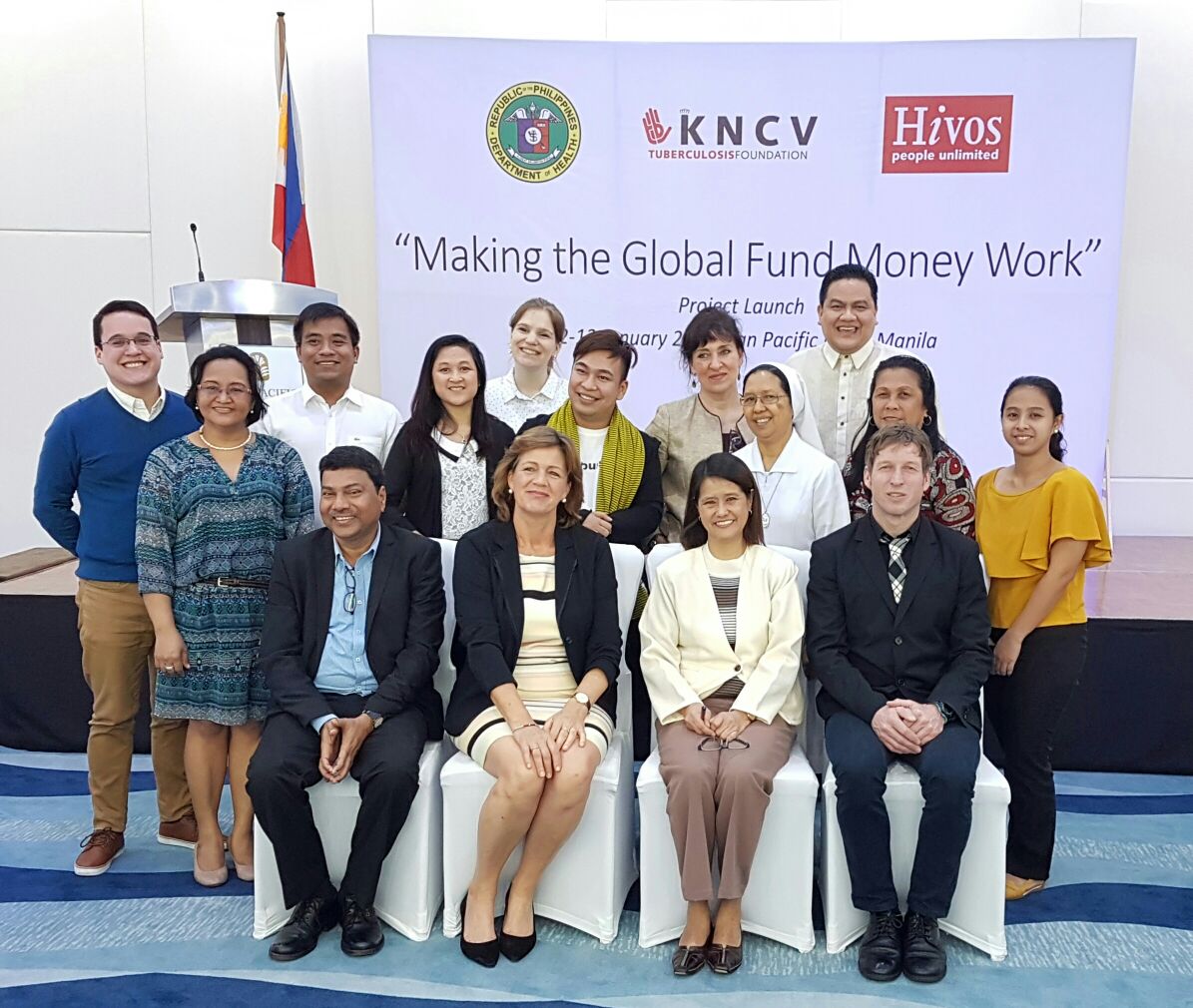Above: Official signing of the MoU between Hivos, KNCV and the DOH; in presence of Dutch Amb Marion Derckx / Credit: Andre Villanueva from KNCV
As programme officer for the Hivos HIV & Human Rights Programme, I joined our team in Manila this January for the launch of our newest project. During the course of my visit, I also met several of our partners working on HIV issues in the Philippines. I would like to tell you about the situation of HIV, and Tuberculosis in the country and how we are planning to address both epidemics.
The Philippines is one of the countries in the world most affected by both tuberculosis (TB) and HIV, with alarming infection rates for both diseases particularly among key populations. Hivos, the KNCV Tuberculosis Foundation, the Philippine Government and local civil society have joined forces to pave the way towards putting an end to both epidemics in the country.
As the first step of this all-round collaboration, on 12 January 2017, in front of many relevant actors – including the Dutch Ambassador to the Philippines, local governments and civil society – an important Memorandum of Understanding was signed between Hivos, KNCV, and the Philippine Department of Health (DOH) as a symbol of their partnership to improve the prevention and treatment of TB-HIV.
By joining forces with KNCV – and its well-recognized technical expertise in the field of TB treatment and HIV co-morbidity –, Hivos will make use of its experience working on HIV/AIDS prevention and treatment in more than 30 countries. Hivos will stress the need to provide services tailored to address the needs of those who are most vulnerable to both diseases (i.e. people living in urban-poor neighbourhoods, people living with HIV, LGBTIs, sex workers, and people who use drugs.) to make sure they are fully involved in the project, their voices are heard, and their human rights protected.
Andre Villanueva from KNCV, helps facilitating a workshops with the implementing partners, the DOH and other relevant stakeholders, as they worked together to plan the activities for 2017:
The project is small, but the ambitions are high
This project seeks to create a replicable model for future TB-HIV interventions in the Philippines that are both sustainable and scalable country-wide by promoting strong private-public partnerships in healthcare policy-making and service delivery. After a year of consultations with the government, local communities and practitioners, the project was designed to ensure full cooperation between the public and the private sectors, from start to finish.
The project will be put to the test for two years in two cities of Metro Manila – Tondo and Mandaluyong – where TB and HIV infections are highly concentrated. During the first year, funding will be provided to private and community-based clinics for them to strengthen their TB and HIV services. From there on – until 2019-, different incentives will be provided for the clinics to progressively increase their case finding. The data/evidence gathered from this pilot will help the formulation of the model; and if the model proves successful, the DOH will fund and replicate the project countrywide.
We are already working with three local community-based clinics: the Santo Nino de Tondo Parish Clinic, the Cannosa Health and Social Center, and Loveyourself. During my stay in Manila, I met with members of the staff and was deeply touched by their inspiring stories. Their positive energy and passion for what they do to help others is very contagious! For us, at Hivos, the leaders of all our projects are the local communities
Mrs Gloria Llagas –Clinic Head- and Mrs Welda Peralta –Microscopist-, Santo Niño de Tondo Parish Clinic:
For many years, Gloria Llagas and Welda Peralta have served their own community in Tondo (the most impoverished district in Metro Manila) through the Santo Nino de Tondo Parish Clinic. They look forward to learning how – with the help of the partners of the project – they can improve their work to provide further assistance to those most affected by HIV and TB. “It is heartwarming to know that there are a lot of partners who are willing to help and share their expertise to help us implement the project and make it successful,” they say in unison. Their community center not only provides integral medical assistance to vulnerable families and homeless persons, but also runs projects to provide allowances for kids to attend schools and vocational trainings for those who want to improve their work prospects.
Meeting the staff of the Canossa Health and Social Center:
Chyrna, who works as a nurse for the Cannosa Health and Social Center, says that her devotion to help others comes from her conviction that “(…) caring for one is caring for the family, caring for the family is caring for the community”. With this project she hopes that the center she works for can better address the needs of the beneficiaries in Tondo; but personally wants to be a driver in involving everyone and truly learn from the other clinics.
Chyrna Ricci R. Mendoza, Nurse from the Canossa Health and Social Center:
The third implementing partner is Loveyourself, an LGBTQI-run NGO that is supported by more than 800 local volunteers and activists. Originally founded in 2011 by the Manila-born nurse Ronivin ‘Vinn’ Garcia Pagtakhan, this initiative started as a community-based HIV testing clinic for men who have sex with men (MSM) in Manila. However, thanks to their successfully having reached over 40.000 persons in 5 years, the organization is constantly seeking to expand its services and now incorporates care for TB into their work. Their work ethics and approach are based on promoting and nurturing a much needed sense of self-worth and belonging to a community, particularly in a country where the LGBTQI still suffer from much violence and discrimination.
Ronivin ‘Vinn’ Garcia Pagtakhan, Director of Loveyourself:









